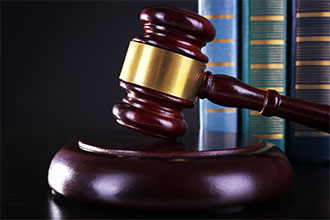
Probation is a preferable option compared to continuing to serve time in prison. An experienced Las Vegas defense lawyer can assist defendants both in arguing for probation to be imposed as a penalty and in understanding what is required to complete their probation.
The specific section of the Nevada Code that establishes the discharge protocols following a term of probation or parole is NRS 176A.850 and 176A.870.
NRS 176A.850 addresses honorable discharge from probation and NRS 176A.870 addresses dishonorable discharge.
According to NRS 176A.850, honorable discharge from parole is available when someone:
(a) Has fulfilled the conditions of probation for the entire period thereof;
Nick Wooldridge has a long track record of representing clients accused of serious federal and state crimes in Nevada.
(b) Is recommended for earlier discharge by the Division; or
(c) Has demonstrated fitness for honorable discharge but because of economic hardship, verified by the Division, has been unable to make restitution as ordered by the court, may be granted an honorable discharge from probation by order of the court.
(a) Is free from the terms and conditions of probation.
(b) Is immediately restored to the following civil rights:
(1) The right to vote; and
When I initially met with Mr. Wooldridge, he took the opportunity to sit and go over my problem with me. He described details in my case which he found disturbing and explained why he I should have him on my side.
(2) The right to serve as a juror in a civil action.
(c) Four years after the date of honorable discharge from probation, is restored to the right to hold office.
(d) Six years after the date of honorable discharge from probation, is restored to the right to serve as a juror in a criminal action.
(e) If the person meets the requirements of NRS 179.245, may apply to the court for the sealing of records relating to the conviction.
(f) Must be informed of the provisions of this section and NRS 179.245 in the person’s probation papers.
(g) Is exempt from the requirements of chapter 179C of NRS, but is not exempt from the requirements of chapter 179D of NRS.
(h) Shall disclose the conviction to a gaming establishment and to the State and its agencies, departments, boards, commissions and political subdivisions, if required in an application for employment, license or other permit. As used in this paragraph, establishment has the meaning ascribed to it in NRS 463.0148.
(i) Except as otherwise provided in paragraph (h), need not disclose the conviction to an employer or prospective employer.
(a) Of a category A felony.
(b) Of an offense that would constitute a category A felony if committed as of the date of the honorable discharge from probation.
(c) Of a category B felony involving the use of force or violence that resulted in substantial bodily harm to the victim.
(d) Of an offense involving the use of force or violence that resulted in substantial bodily harm to the victim and that would constitute a category B felony if committed as of the date of honorable discharge from probation.
(e) Two or more times of a felony, unless a felony for which the person has been convicted arose out of the same act, transaction or occurrence as another felony, in which case the convictions for those felonies shall be deemed to constitute a single conviction for the purposes of this paragraph.
A person described in this subsection may petition a court of competent jurisdiction for an order granting the restoration of civil rights as set forth in subsection 3.
(a) That the person has received an honorable discharge from probation;
(b) That the person has been restored to his or her civil rights to vote and to serve as a juror in a civil action as of the date of honorable discharge from probation;
(c) The date on which the person s civil right to hold office will be restored pursuant to paragraph (c) of subsection 3; and
(d) The date on which the person s civil right to serve as a juror in a criminal action will be restored pursuant to paragraph (d) of subsection 3.
(a) Official documentation of honorable discharge from probation, if it contains the provisions set forth in subsection 6; or
(b) A court order restoring the person’s civil rights,
as proof that the person has been restored to the civil rights set forth in subsection 3.
Legal assistance continues to be valuable throughout the entirety of your involvement with the Nevada Court system, Department of Corrections, and Division of Parole and Probation. This is why it makes sense to retain the services of a skilled and experienced Las Vegas criminal defense lawyer. Give our law firm a call today to find out more about the assistance we provide.